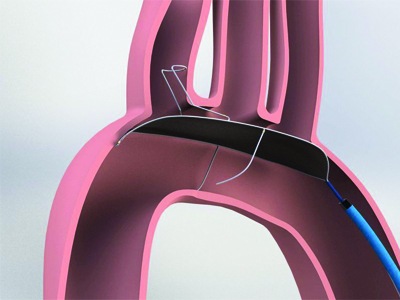
Keystone Heart has announced that a pooled analysis of three prospective and comparable clinical studies of patients undergoing transcatheter valve implantation (TAVI) in USA and Europe, have shown that TriGuard cerebral protection significantly reduces stroke rate, lowers CNS infarction and reduces total lesion volume, without adversely impacting the safety of the TAVI procedure.
The aim of the analysis was to evaluate the safety and effectiveness of the TriGuard HDH embolic deflection device compared to no protection.
Alexandra J Lansky (division of Cardiology, Yale School of Medicine and Yale Cardiovascular Research Group, New Haven, USA) presented the analysis at EuroPCR 2016, during the late breaking trials session on new valvular interventions and enabling technologies.
The patient level data was pooled from a total of 142 patients undergoing TAVI with TriGuard protection (n=59) vs. no protection (n=83). The data was pooled from three trials (DEFLECT I, DEFLECT III and Neuro TAVR) evaluating neurologic complications with and without cerebral protection during TAVR. All three trials mandated pre-discharge diffusion weighted MRI (DW-MRI) and performed serial neurologic assessments using the same methods and core laboratories.
Key results were as follows:
- TriGuard protection significantly reduced in hospital VARC2 defined stroke (0% vs. 6.0%, p=0.05)
- TriGuard protection significantly reduced stroke rate defined by worsening NIHSS (National Institutes of Health Stroke Scale) with DW-MRI lesions (0% vs. 19%, p=0.002)
- TriGuard protected patients showed higher absence of CNS infarction (28% vs. 8%, p=0.008)
- Total lesion volume was reduced significantly with TriGuard vs. no protection (315+620mm3 vs. 511+893mm3, p=0.04)
- None of the TriGuard protected patients had worsened NIHS score, while 17.1% of the patients without protection had worsened NIHS score (p=0.001)
- These clinically meaningful outcomes, clearly demonstrate the importance of using TriGuard, and the potential consequences of unprotected procedures.












